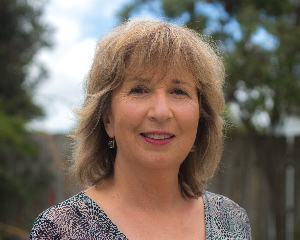Time for 'green' classification system
Advisers say there’s too much uncertainty about “responsible” investment funds.
Wednesday, July 11th 2018, 6:00AM  1 Comment
1 Comment
by Susan Edmunds

There are concerns of "green-washing" - where managers claim to be investing money in ethically and socially responsible ways to attract clients but have limited points of difference. Last week, Kiwi Wealth chief investment officer Simon O'Grady said he was concerned that some funds were doing clients a disservice with blanket exclusions.
Adviser Nigel Tate said very few “responsible” funds were as responsible as they claimed to be. “They do as much as they can but at the end of the day if you don’t want to invest in tobacco you can’t even invest in a bank.”
He said a certification system would be helpful to measure funds against.
Another adviser, Liz Koh, said it was tough for investors and advisers to get the right information. “You have to drill down a long way to see what’s in them. And not all fund managers are willing to release that information.”
She said it was often left to things such as whether the fund manager had signed up to the UNPRI or had stated principles.
Law firm Russell McVeagh has said rules are needed to determine what constitutes a "green" managed funds.
It said such a rule could be added to the Zero Carbon Bill, or be a set of standards developed by the KiwiSaver industry.
The firm said managers should also have clear rules around what disclosures were expected. While there was no fixed definition of a "green" fund, claims were hard to police, it said.
Morningstar director of manager research ratings, Asia-Pacific, Chris Douglas, welcomed the suggestion.
He said it was not a problem specific to managed funds - food manufacturers have similar issues with "organic" claims.
Douglas said the Responsible Investment Association of Australasia was the body that should provide such a definition.
"With green investment you have got to understand where you draw the line. Are you going to rule out any company with any fossil fuel investment? What about a company that is running a carbon neutral approach and making changes to the environment but part of the business is fossil fuels? That's a tricky decision. It's never black and white. It's great that one of our bigger law firms has called this out."
At the moment there was a small enough number of green funds that investors could properly research them, he said. But as the industry grew it would be important to have ways to shortcut that.
John Berry, of Pathfinder, said it was tougher to define a green equity fund.
"We are at the point in non-KiwiSaver funds that managers should be making it clear for investors if they are not including responsible investment considerations," he said.
"Most investors would be surprised if a fund did not exclude tobacco stocks and manufacturers of controversial weapons. A few simple exclusions does not make a fund green. In the fixed income space there is a clear framework to define what a green bond it. The problem in equities is that there are so many different investment approaches and different understandings on what is or is not responsible."
Simon O'Connor, chief executive of the Responsible Investment Association of Australasia said there was a growing number of responsibly-labelled funds, which did require more clarity for consumers.
"There is a great diversity of responsible investment products coming to market and we believe that this diversity is a strength of the market, ensuring consumers can find products that match their own interests and values - whether that be deep green investments that proactively target more sustainable companies, or more ethical investments that aim to avoid harmful investments.
"In this context, a single definition is unlikely to meet the needs of all consumers, so we believe what is critical is transparency, simple clear disclosures and that products are true to label, ensuring consumers are not mislead."
He said his organisation's certification programme was targeted at making it easier for investors to understand the differences. It has 30 certified products in New Zealand.
"To date, we haven't seen any instances of funds that are misleading to consumers, but we continue to be on the front foot to ensure very clear labelling is in place, by setting these standards in our certification programme, which is the world's oldest responsible investment certification program at over a decade old. It is noteworthy that globally there is a move to create more standard definitions around responsible and sustainable investments, and RIAA is working with international colleagues on a number of such moves to ensure any future changes in the names are globally consistent - this includes work of the European Commission and the UK Green Finance Taskforce."
| « [GRTV] The case for index funds | Mann on a mission to diversify financial advice » |
Special Offers
Comments from our readers
Sign In to add your comment
| Printable version | Email to a friend |




The old investments have been given a list of screens clients are asking for and work is being done by groups such as the Ethical Advisers Cooperative in Australia and Responsible Investment Association of Australasia to educate investment houses as to what clients want.